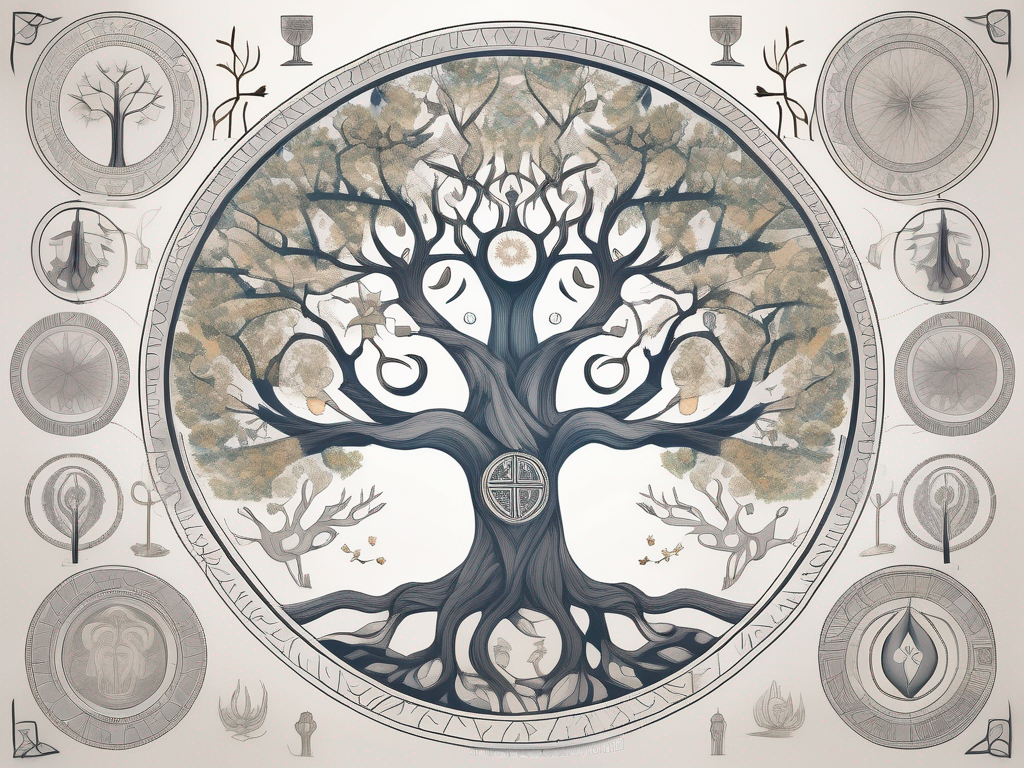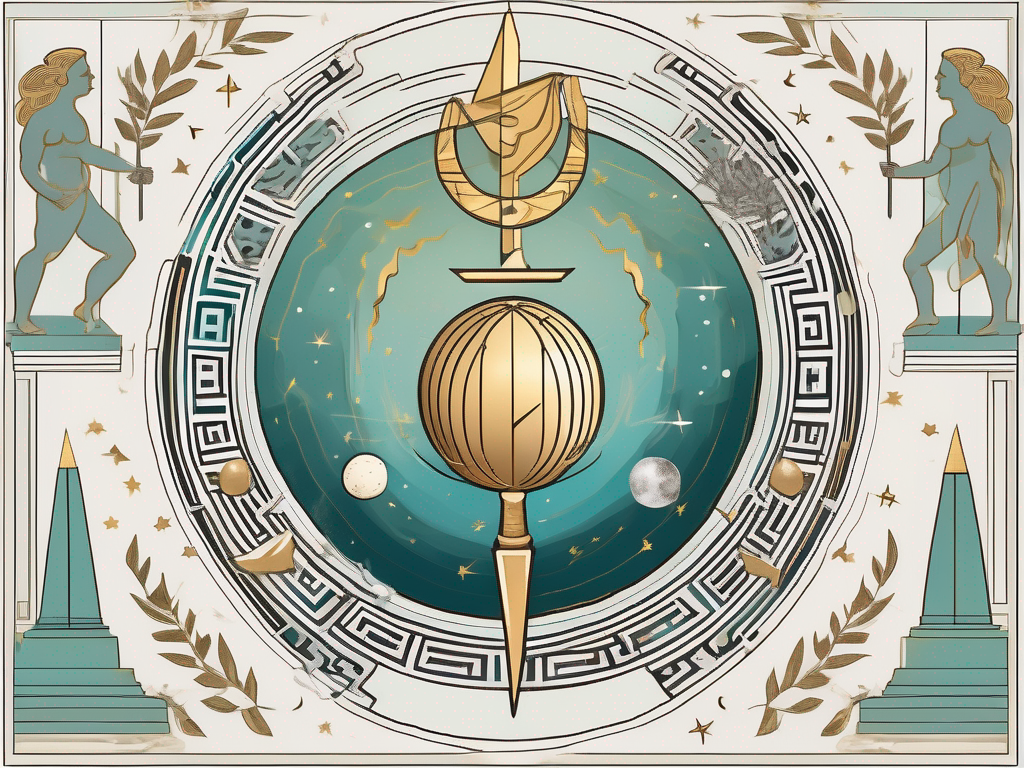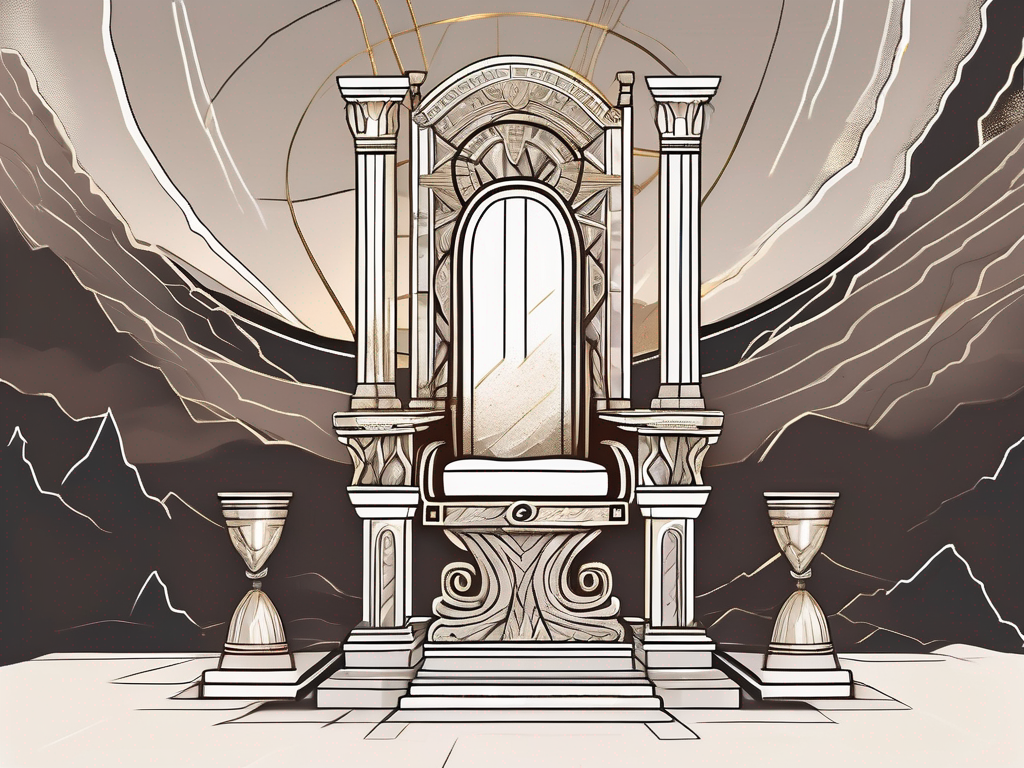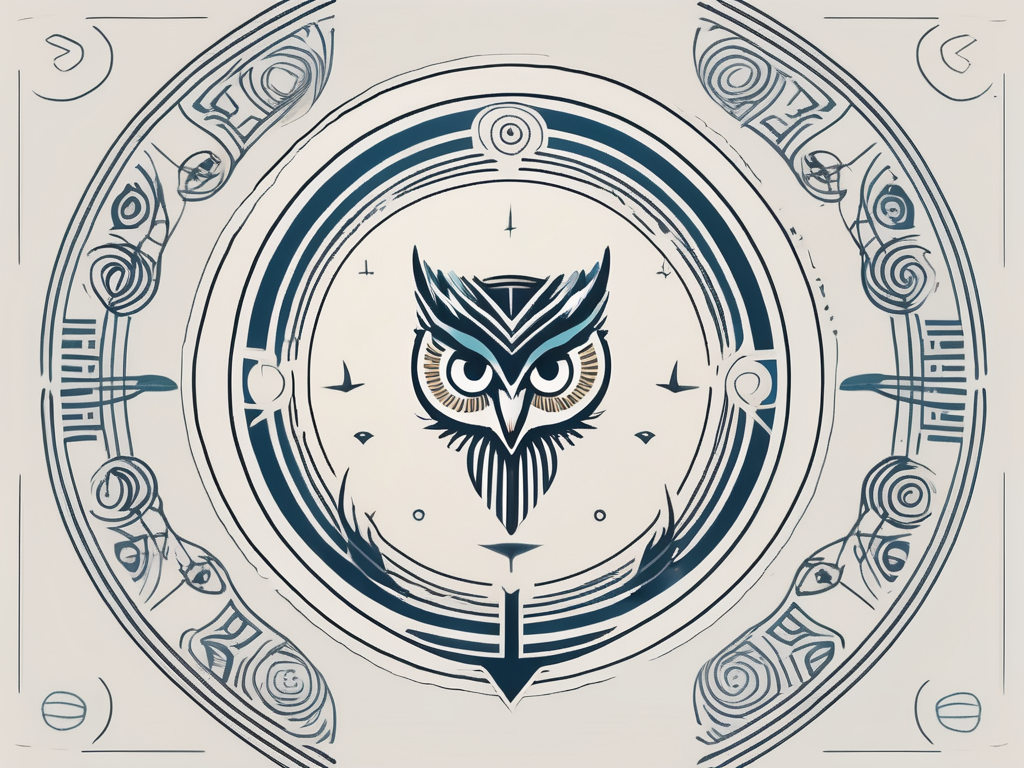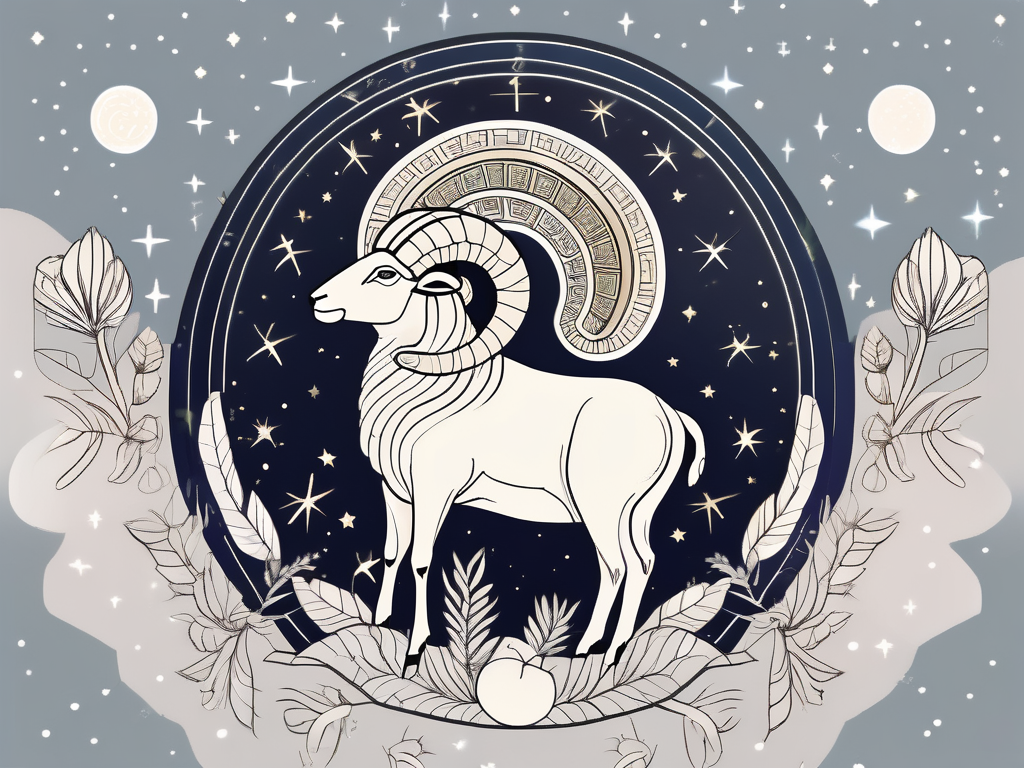Zeus, the king of gods in Greek mythology, is an intriguing figure whose power and influence have captivated the minds of people for centuries. In this article, we will delve into the fascinating world of Zeus, exploring his birth, rise to power, role in Greek mythology, and the impact he continues to have on both ancient and modern cultures.
Understanding Zeus: The King of Gods
The Birth and Rise of Zeus
Zeus, the mighty ruler of the gods in Greek mythology, had a fascinating and tumultuous journey to his position of power. Born to Cronus and Rhea, two powerful titans who reigned over the world before the Olympian gods, Zeus faced a perilous fate from the moment he came into existence. Cronus, fearing a prophecy that one of his children would overthrow him, resorted to a horrific act – devouring each of his offspring as soon as they were born.
However, fate had other plans for Zeus. Rhea, his mother, could not bear to see her child suffer the same fate as his siblings. With immense courage and cunning, she managed to save Zeus by hiding him away and deceiving Cronus. Instead of her newborn son, Cronus unknowingly swallowed a stone wrapped in swaddling clothes. Thus, Zeus was spared from his father’s insidious grasp.
Hidden in a cave on the enchanting island of Crete, Zeus grew in strength and power, nurtured and guided by the wise nymphs who recognized his divine potential. Under their watchful eyes, Zeus flourished, honing his skills and developing the wisdom that would later define his reign. As he reached adulthood, Zeus’s determination to challenge his father’s oppressive rule grew stronger.
With unwavering resolve, Zeus led a courageous rebellion against Cronus, rallying his fellow gods and goddesses to his cause. The battle that ensued was fierce, with the fate of the cosmos hanging in the balance. Ultimately, Zeus emerged victorious, overthrowing his tyrannical father and ascending to the throne as the new ruler of the gods.
Zeus’s Role in Greek Mythology
Zeus, with his majestic presence and thunderous voice, played a pivotal role in the rich tapestry of Greek mythology. As the king of gods, he commanded unparalleled authority and held sway over the heavens and the earth. Zeus’s dominion extended beyond mere governance; he embodied the forces of the sky, thunder, and lightning, wielding their power with awe-inspiring might.
However, Zeus’s character was not without flaws. His insatiable appetite for love and desire led to countless affairs, both with mortals and fellow gods. These dalliances resulted in a myriad of children, each possessing their own unique abilities and destinies. From Hercules, the epitome of strength, to Athena, the goddess of wisdom, Zeus’s progeny left an indelible mark on Greek mythology.
As the supreme ruler of gods, Zeus assumed the weighty responsibility of maintaining order and justice among both divine beings and mortals. With his wisdom and discernment, he acted as the ultimate arbiter, ensuring that harmony prevailed in the cosmos. Zeus’s interventions in human affairs were frequent and impactful, as he wielded his power to shape events and guide the destinies of individuals.
Whether bestowing blessings upon heroes or delivering punishments to those who defied him, Zeus’s influence reverberated throughout Greek mythology. His thunderbolts could bring both destruction and renewal, symbolizing the duality of his nature. Zeus’s reign as the king of gods was characterized by his unwavering commitment to upholding the principles of justice, even as he navigated the complexities of his own divine existence.
Zeus’s Powers and Abilities
Zeus, the king of the gods in Greek mythology, was known for his incredible powers and abilities. Let’s delve into some of the most fascinating aspects of his divine arsenal.
The Thunderbolt: Zeus’s Signature Weapon
Perhaps the most iconic symbol of Zeus is his thunderbolt. Crafted by the Cyclopes, Zeus’s thunderbolt was a weapon of immense power that could unleash devastating lightning strikes and control the forces of nature. With a mere gesture, Zeus could summon storms, lightning, and thunder, asserting his dominion over the sky.
Legend has it that the thunderbolt was forged from the heart of a mighty storm, imbued with the raw energy of lightning itself. The mere sight of Zeus brandishing his thunderbolt struck fear into the hearts of mortals and gods alike, reminding them of his unrivaled strength and authority.
When Zeus hurled his thunderbolt, it would streak across the heavens, illuminating the darkened skies with its blinding brilliance. The thunderous roar that followed would echo through the mountains and valleys, a testament to the god’s power and the awe-inspiring forces he commanded.
Shapeshifting and Other Supernatural Abilities
In addition to his mastery of lightning, Zeus possessed the ability to shapeshift, assuming any form he desired. This power allowed him to interact with mortals undetected, often playing a pivotal role in the trials and tribulations of heroes and heroines in Greek mythology.
Zeus’s shapeshifting abilities were not limited to a single form. He could transform into various creatures, such as an eagle, a bull, or even a swan, to carry out his divine plans. This remarkable talent enabled him to approach mortals incognito, testing their character and meting out justice when necessary.
Furthermore, Zeus had the power of prophecy and could communicate through dreams and signs. Mortals seeking guidance would often turn to Zeus, hoping for his wisdom to shed light on their path. Through cryptic visions and enigmatic symbols, Zeus would offer glimpses of the future, guiding mortals through the intricate tapestry of their lives.
It is said that Zeus’s dreams were so vivid and powerful that they could shake the very foundations of the mortal world. Mortals who were fortunate enough to receive a divine dream from Zeus would awaken with a sense of purpose and clarity, knowing that they had been touched by the king of the gods himself.
Zeus’s powers and abilities were not only a testament to his godly might but also a reflection of his multifaceted nature. As the ruler of the heavens and the earth, he embodied the vastness of the cosmos and the intricate interplay between the mortal and divine realms.
The Influence of Zeus in Ancient Greece
In ancient Greece, Zeus was worshiped as the supreme deity in countless temples and sanctuaries. His cult was widespread, and festivals, including the renowned Olympic Games, were held in his honor.
Devotees would offer sacrifices, perform rituals, and pay homage to Zeus, seeking his favor and protection. The sanctuaries dedicated to Zeus were places of solace and refuge, where people could find comfort and guidance in times of turmoil.
One of the most famous temples dedicated to Zeus was the Temple of Zeus at Olympia. This magnificent structure housed a colossal statue of the god, made of gold and ivory, which was considered one of the Seven Wonders of the Ancient World. Pilgrims from all over Greece would travel to Olympia to witness the grandeur of this temple and pay their respects to Zeus.
Zeus was not only worshiped in temples but also in outdoor sanctuaries, such as the sacred grove of Dodona. Here, priests would interpret the rustling of the sacred oak trees as messages from Zeus himself. People would gather in this mystical place, hoping to receive divine guidance and wisdom.
Zeus’s Impact on Greek Art and Literature
The influence of Zeus extended beyond religious worship and into the realm of art and literature. He served as a popular subject for ancient Greek artists, who depicted him in sculptures, pottery, and paintings. These artistic expressions not only showcased Zeus’s power and regal countenance but also conveyed his role in the cosmic order.
One of the most famous sculptures of Zeus is the statue created by the renowned sculptor Phidias. This masterpiece, known as the Statue of Zeus at Olympia, was housed in the Temple of Zeus and portrayed the god seated on a throne, holding a scepter and a thunderbolt. The statue was so lifelike and awe-inspiring that it became a symbol of Greek artistic excellence.
Likewise, Zeus’s compelling stories and grand adventures became a source of inspiration for poets and storytellers. From epic poems like Homer’s Iliad and Odyssey to the tragedies of Euripides and Aeschylus, Zeus’s presence loomed large, leaving an indelible mark on ancient Greek literature.
In these literary works, Zeus was often depicted as a powerful and unpredictable deity, capable of both great benevolence and wrath. His interactions with mortals and other gods provided rich material for dramatic storytelling, exploring themes of fate, hubris, and the delicate balance between mortals and the divine.
One of the most famous stories involving Zeus is the myth of Prometheus. In this tale, Zeus punishes Prometheus for stealing fire from the gods and giving it to humanity. The conflict between Zeus and Prometheus serves as a metaphor for the struggle between authority and rebellion, highlighting the complex nature of Zeus’s character.
Overall, Zeus’s influence in ancient Greece was vast and multifaceted. From the grand temples dedicated to his worship to the artistic and literary works inspired by his power, Zeus’s presence permeated every aspect of Greek society and culture.
Zeus’s Legacy in Modern Culture
Zeus in Contemporary Literature and Film
Zeus’s enduring legacy continues to captivate contemporary audiences. His character often appears in literature and popular culture, reimagined and reinterpreted by modern authors. From Rick Riordan’s best-selling “Percy Jackson and the Olympians” series to blockbuster films like “Clash of the Titans,” Zeus’s mythological stature has found a place in the hearts and minds of a new generation.
The Enduring Symbolism of Zeus
Beyond his representations in literature and film, Zeus remains a potent symbol in various aspects of modern culture. The thunderbolt, an emblem of his power, is often used to represent strength and authority. Additionally, phrases such as “lightning-fast” and “thunderous applause” find their roots in the awe-inspiring nature of Zeus.
In conclusion, Zeus’s power and influence permeate both ancient and modern cultures. From his birth and rise to his role in Greek mythology, Zeus continues to capture our imagination through his powers, his impact on ancient Greece, and his enduring legacy in contemporary literature and film. The mighty Zeus stands tall as a testament to the enduring power of myth and the human fascination with larger-than-life figures.


